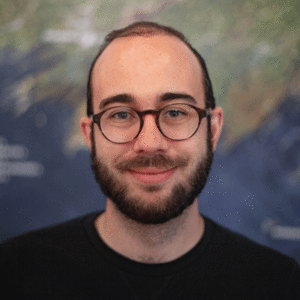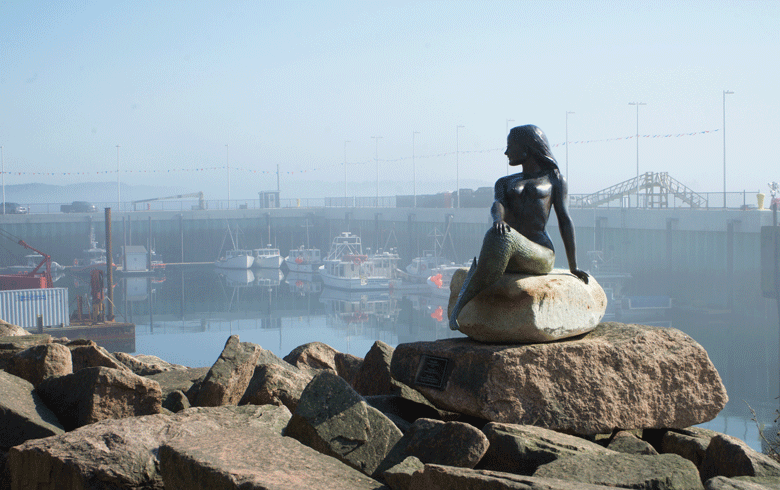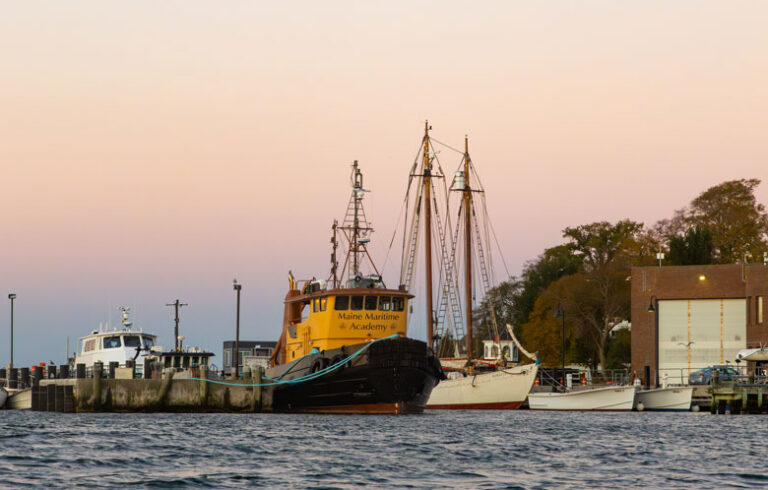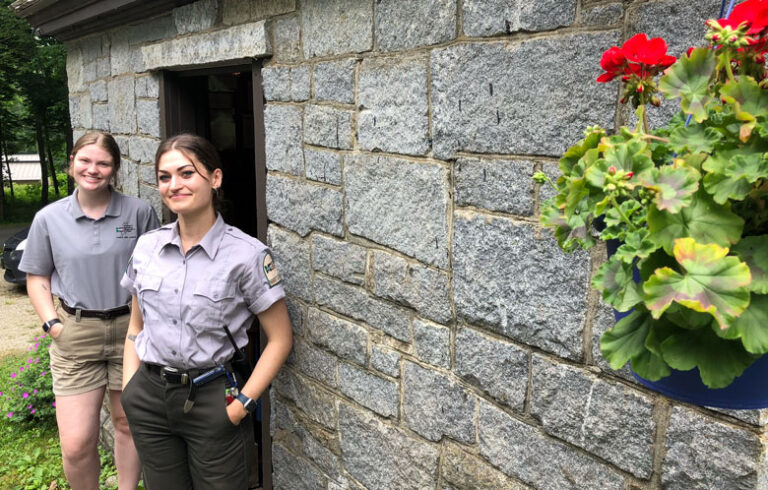Reflections is written by Island Fellows, recent college grads who do community service work on Maine islands and in coastal communities through the Island Institute, publisher of The Working Waterfront.
When my father and I crossed from Quebec into Maine, the border agent raised an eyebrow as he looked at our IDs. “You ever set foot in Maine before?” We replied we hadn’t and that I had taken a job out here blind. “I hope you like winters.”

We drove across the state in one fell swoop and arrived in Eastport quickly. My first taste of Maine was Downeast, which seemed Up East to me, but I wasn’t going to call anyone on it. At that point, I thought Maine was simply trees, trees, more trees, and some water.
What had I done? I was confused, also, by the culture. In my native Utah, we talked nice but never had to follow through. Here it was just the opposite. Folks were curt, flat, a little gruff and yet when I needed help, there was everyone and their mother ready to chip in. How odd.
On top of that, there was adjusting to small town life. It was like living in a fishbowl. If I sneezed, someone across town knew about it before I did. And vice-versa. And how was I expected to learn all these names? And the store closes when? And it’s open what months? And who said what to whom? And whose family did what when? And who’s related to whom? And what do you mean I didn’t wave?
Over my first few months, I couldn’t help but notice the distinct lack of young people. I pictured my social life populated by folks my parents age and up. It didn’t seem like a pretty picture. Then, as the border agent warned, came winter.
I’m no Floridian. Utah has a hearty winter, but this was different. Not only was it cold, it was wet. Not only was there ice, there were blankets of it. Not only was it dark, but it was dark at 3 p.m. Not only was I going crazy, I was going crazy.
I thought I had weathered the worst of it when suddenly the pandemic hit. I’ve got a word limit, so I’ll be brief: cookies, sweatpants, Zoom calls, video editing, and a healthy sense of doom.
Over my first few months, I couldn’t help but notice the distinct lack of young people.
It may come as a surprise then that nearly two years after my first trepidatious steps in Maine, I’m planning to stay. Not just stay but bring my partner (and her bird) out here to the end—excuse me—beginning of the world. I’m doing all the things I thought I’d never do, especially here: the house, the long-term job commitment, the relationships and responsibilities. So what gives?
Maine takes time. After two years, I’ve barely scratched the surface. There’s a rhythm to life here that’s hard to pin down. It has something to do with the seasons and something to do with tradition, but it’s less obvious than that. It feels right and natural. Maine isn’t polite, but it is kind. It’s helped me learn to be kind too.
It’s helped me gain a sense of community—a vague word for a very clear feeling. The relationships were not what I expected either. The wisdom and advice I’ve gained from having friends in their 40s, 60s, and 80s has proved indispensable. More than that, these old fogeys are fun! Indeed, Maine is so many things I overlooked at first glance. It’s resilient, hard-working, independent, unspoiled, raw, and beautiful.
Even these infamous Maine winters weren’t what they seemed. They’re less a torture and more a crucible. They force introspection, exploration, and creativity. One enters them one way and almost by force exits another—transformed.
There’s a secret in the winters here. One that takes more than just a couple years to suss out. I plan to do just that as I put down roots here. Then maybe one day I’ll make the drive back to the Coburn Gore port of entry and let that border agent know I do like winters.
Mark Macey works with the Eastport Arts Center to develop and implement youth and adult programming. He also helps the staff with events both on and off-stage. A graduate of Dell’Arte International’s PTP, he also holds a BA in theatre studies from the University of Utah.





